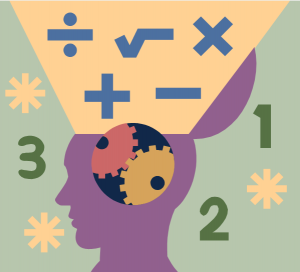by Viswanathan Subramanian
[box]In the first part of his series discussing memory (in the July 2012 issue), Viswanathan Subramanian spoke about how we have misplaced the role of memory in our lives, which in turn is causing so many misunderstandings in our relationships. Continuing to share his thoughts on memory, Viswanathan discusses Ulladhu Narpadhu or the Forty Verses on Reality by Sri Ramana Maharishi in this article.[/box]Discussing memory and intelligence is the starting point in our introspection of our own nature. But why should we know our nature, if at all?
Because, if our base, the place where we start, is not right, whatever we do from the wrong base will lead to misleading perceptions. The perspective we had on memory in the previous issue is a side light in our initiative to know the reality.
Forty Verses on Reality (Ulladu Narpathu) by Bhagawan Sri Ramana Maharishi is one of the most interesting pointers to understanding ourselves. The Tamil title “Ulladu Narpathu” can be best translated in English to “Forty and Forty alone and nothing more and nothing less.”
 Every one of these forty verses (each running to four lines) is a focussed, intensive, in-depth contemplation of facets of reality. Intellect is dominant in us and given the sort of importance we give to knowledge and memory, our intellect has grown from strength to strength. Hence the barrier of intellect is all too strong and unless this is overcome, one is bound to miss the perception of reality which is beyond the realm of intellect.
Every one of these forty verses (each running to four lines) is a focussed, intensive, in-depth contemplation of facets of reality. Intellect is dominant in us and given the sort of importance we give to knowledge and memory, our intellect has grown from strength to strength. Hence the barrier of intellect is all too strong and unless this is overcome, one is bound to miss the perception of reality which is beyond the realm of intellect.
Reality is simple and straightforward and does not demand a sharp and refined intellect at all. A simple mind – heart – can grasp reality faster than a mind riddled with intellectual questions and doubts. Let us understand the touchstone of beauty of Forty Verses.
Verse 15 has the following to convey:
“The past and future stand (only by) depending upon the present, which remains always. While occurring, they (the past and future) are both only the present. Therefore, the present is only one (time). (In other words, there are not three times, the past, present and future; there is only one time, the present). (Hence) trying to know the past and the future without knowing the truth of the present (that is without knowing the truth that the present is not existent as one of the three times, and that the sole reality underlying the sense of present time is the ever-existing self) is like trying to count without knowing the value of Unit One. The present is found to be truly non-existent and hence, past and future will also cease to exist.
If the present is experienced as one’s mere being “I am,” devoid of all thoughts, it is real. But if the same present is experienced as one of the three times in which thoughts of other two times (past and future) occur, it is unreal (as the thoughts can only be about past or future).”
(Source: Sri Ramanopadesa Noonmalai- Word-by-word translation in English by Swami Sadhu Om).
It is the memory – thoughts – that creates the past, present and future. When you are in deep sleep, do you have the sense of time? There is nothing like past, present and future in deep sleep. When consciousness is interrupted by thoughts, time is created. So, memory is the creator of past, present and future.
Only when “I” as an entity steps in, the moment one wakes up, the inventory of memory gets accessed. In other words, the creator of source of time – past, present and future – steps in. Once we wake up, the mind starts rushing in various directions owing to the continuous train of thoughts.
The past is full of thoughts and remembrances. Put differently, the present that we record in our minds becomes the past. Our notions, opinions and conclusions of a person or a thing are but thoughts. Thoughts interfere in our perception when we interact with the so-called world. These thoughts cause hurt, the resultant sadness and what not! The backlog of memories is too heavily with us, creating more hurdles and problems. The future too is nothing but past in the sense that they are nothing but our thoughts.
Why do we talk of all this? We discuss this because thought is an imaginary bridge which brings in dimensions of past, present and future. When such divisions are understood as illusion and the underlying truth is one with us (as different from an intellectual understanding), we are really consciousness (not my/your/their consciousness) and we are in harmony. In such a state, thoughts have their own place and function efficiently in the impersonal way, with total absence of ego. There are no personal memories haunting us and creating conflicts and confusions in us. Remember, mind breeds on memory and the mind has to cease for life to be.
Viswanathan Subramanian is a retired banker who is enjoying retirement life pursuing his interests. He loves poring over business newspapers and journals and making notes. Spirituality also interests him, and so a good number of Sri Ramana Maharishi’s and Jiddu Krishnamurthy’s books find space in his bookshelf. He is extremely passionate about movies and music too. You are sure to find some good old English movie DVDs and an enormous collection of old mp3 Hindi and Tamil songs at his place!
[facebook]Share[/facebook] [retweet]Tweet[/retweet]







Very enlightening and well put together!